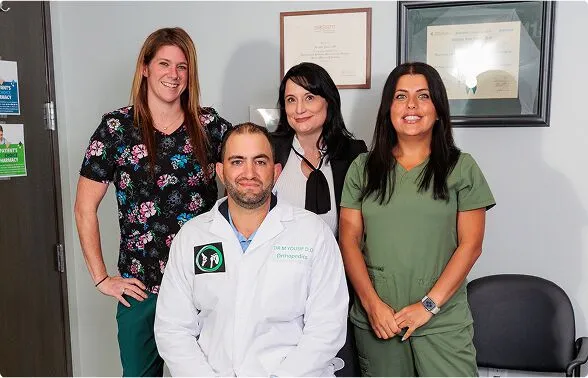Gone are the days when back pain was solely associated with old and elderly grandparents. Back pain, especially lower back pain, is a growing concern among youth and young adults who lead a sedentary lifestyle and overexert themselves at the gym. Lifting weight, carrying heavy objects, and physical labor can majorly cause back pain that does not go away even when you lay down. Why does my back hurt when I lay down? It's a generic query raised by people. There are several possible causes for back pain when lying down, including poor sleeping posture, a slipped disc, or a muscle strain. Identifying the underlying cause is important to effectively treat and manage the pain. This blog will discuss possible causes of back pain when you lay down.
Top Reasons: Why Does My Back Hurt When I Lay Down?
1. Muscle Spasms

Muscle spasms are the wear and tear of a particular muscle or tissue connecting the muscles to the bones. This typically occurs in men and women who exercise using heavy weights. Another reason this may occur is the sudden over-working of your body which may add pressure to the muscles in your back. For someone used to maximum comfort, even climbing the ladder may cause discomfort in your back.
2. Spondylitis
In specific research, Ankylosing spondylitis (AS) is the inflammation of the spine. It is also associated with stiffening the vertebral column around the neck and lower back. This phenomenon occurs in men and women who do not engage in flexible exercises throughout adulthood.
3. Spine osteoarthritis-
It is a degenerative disease that causes inflammation of the spine. This condition begins onset with age and is typically diagnosed in elderly people post the age of 50. Exercises are the only treatment available that can lower the rate of progression. If you are curious what to expect 6 months after spinal fusion?
4. Spinal tumor-
Though rare, tumor growth may grow along the spinal column. It may cause back pain, especially if the tumor compresses the nerves in your back when you lay down.
5. Degenerative disc disease-
This is a degenerative condition that affects the discs present between the vertebral joints. The condition occurs with age and causes stiffness in the spinal column that can cause pain in the back when you lay down.
6. Pilonidal cyst-
The pilonidal cyst is located in the tailbone region of your back. The cyst is typically found to occur in males or in people who sit for long hours or cycle for long hours. The hair in the lower back may scratch open the skin and cause the inner skin to form a cyst around the hair strand. The cyst formed (observed as a pit in the lower back) begins with pain in the lower back while sitting or laying down. It eventually advances to the cyst leaking with pus or blood. At this stage of cyst formation, it must be surgically removed to avoid a serious blood infection.
7. Sciatica -
The sciatic nerve is the longest in the human body that extends from the buttocks to the thigh to the foot. Certain sleeping positions may affect the sciatic nerve and lead to pain in the back. Raising your legs while sleeping or in an inappropriate posture can make the sciatic nerve to cause pain in your back.
8. Spinal Stenosis-
It is a phenomenon wherein the vertebral column of an individual tapers and narrows down towards the tailbone. This creates an imbalance in the spinal column and compresses the surrounding nerves. The best painkillers for spinal stenosis are always taken when prescribed by the doctor.
9. Kidney stones-
The pair of kidneys are located in the lower half of your back. The kidneys might cause back pain when you lie down. Even in patients without any known kidney disorder, not drinking enough water daily can lead to a buildup of toxins in the body and a resulting load on the kidneys to flush them out. This pain is short-term and disappears as soon as your water-drinking habits improve. Drink at least 2 liters daily to avoid back pain due to your kidneys.
10. Fibromyalgia-
Fibromyalgia is a condition of muscle pain all over the body. This muscle pain begins to form stiffness in your body, leading to severelethargy and tiredness. If your back pain is often accompanied by strong tiredness and fatigue, consider seeking medical help.
11. Endometriosis-
Endometriosis is a condition wherein the tissues that surround or line the uterus begin to grow in the surrounding areas of the uterus. These tissues begin to surround the ovaries and the fallopian tube. This buildup of extra tissues around the organs where it isn't needed causes pain and stress in the pelvic region. This pain may extend to the lower back and be persistent until diagnosed with a medical test.
12. Incorrect posture-

Incorrect posture can be in different forms. Standing for long hours at work, sleeping in an incorrect position at night, and sitting for long hours without taking a break in between are all responsible for causing back pain that can last for a few days after the onset. This is mainly due to the strain on the muscles or the connective tissues in the back.
When should you see a doctor?
You might want to consider seeing a doctor for back pain if:
- It begins to interfere with your daily activities.
- It disables your ability to walk and move around.
- Back pain is caused due to an accident ex. slipping off the staircase.
- Pain in the back is persistent and lasts longer than a few days.
- Pain in your back extends to your legs and pelvis.
- Pain in the back keeps you from sleeping at night.
- The pain can cause a tingling sensation or numbness in your back.
- The pain is accompanied by fever and inflammation.
Conclusion
We all cope with pain differently. Some of us prefer to wait for the pain to subside, while others seek immediate help. To sum up, Why does my back hurt when I lay down? This blog has mentioned every possible reason for it. Back pain can be a troubling symptom that is often not serious. However, when the pain is persistent and affects the way you sleep or even the way you think, there could be a serious underlying condition that may require seeking medical advice. Your back is the backbone of your existence, and you ought to take utmost care of it.
Frequently Asked Questions
How can I treat my back pain?
Pain in the back can be treated with the help of a hot compress. Your back may even benefit from a warm oil massage. Conversely, consider using a muscle relaxant spray or an easily available OTC gel. If the pain in your back persists despite these remedies, there may be a more serious cause of the pain that may require medical intervention.
Why does my back hurt when I go to sleep?
There are several reasons your back can hurt when you sleep. Incorrect posture while sleeping, lifting heavy weights, or performing a strenuous duty at work are common reasons. If you observe pain in your back every day for more than two weeks that seems to only get worse with time, an injury may be involved. In elderly people, consistent back pain may be a sign of vertebral column degeneration.

Reviewed by







